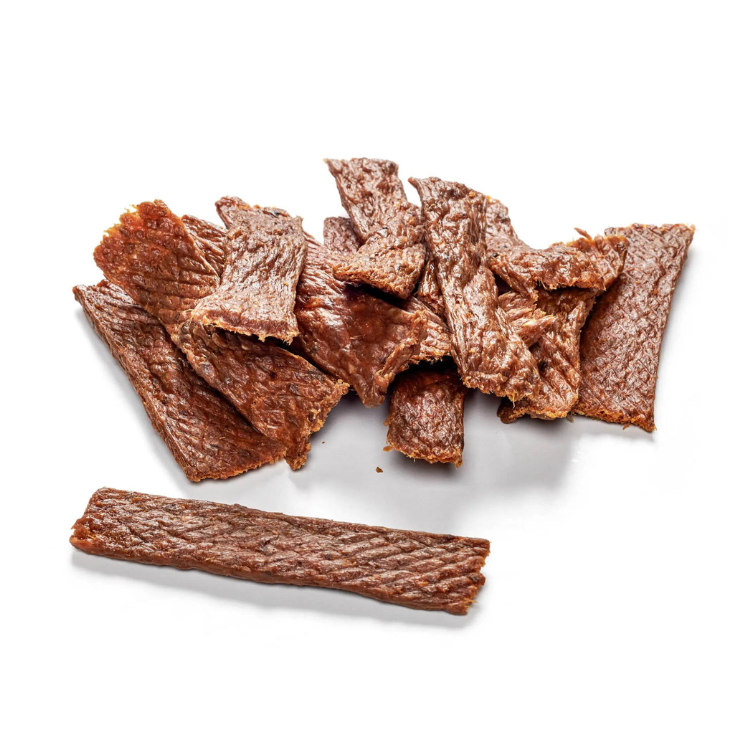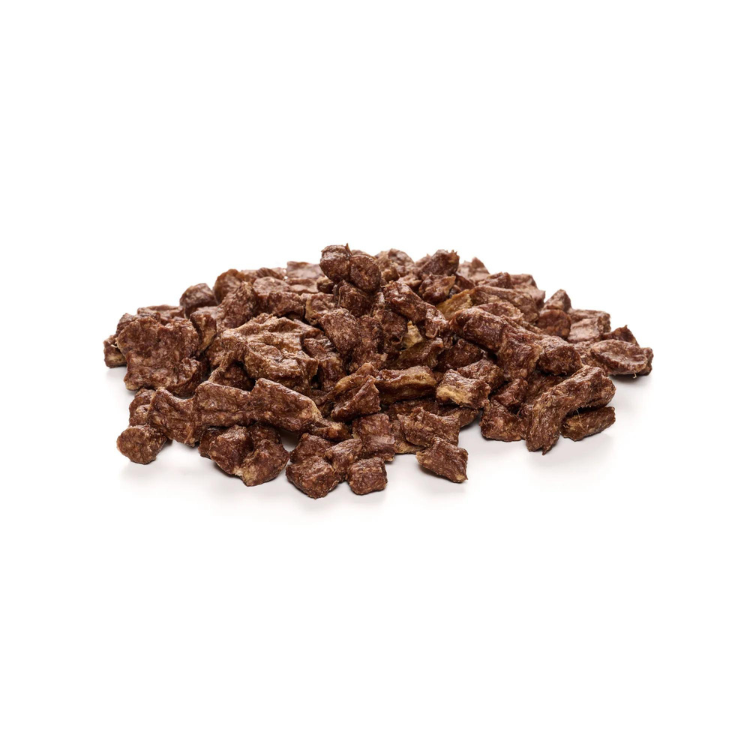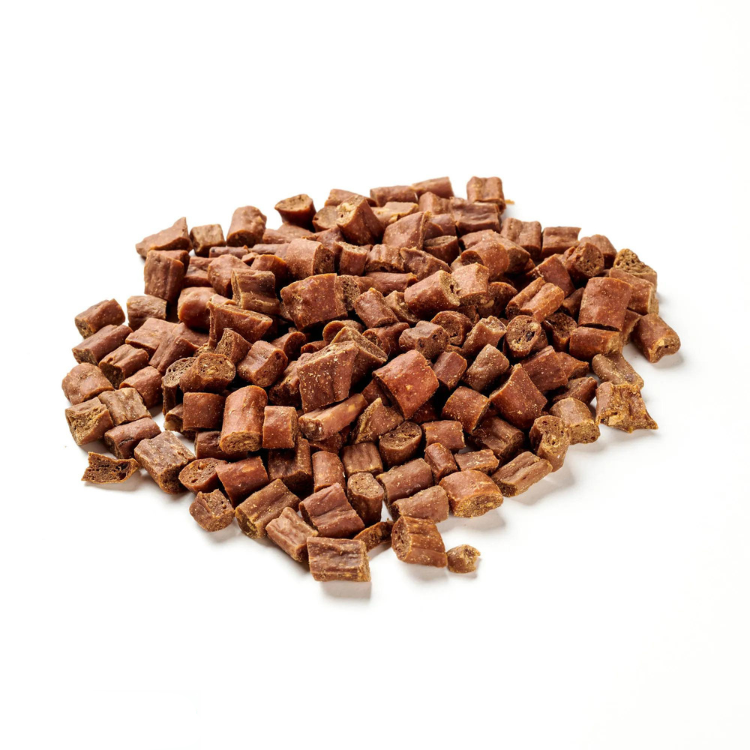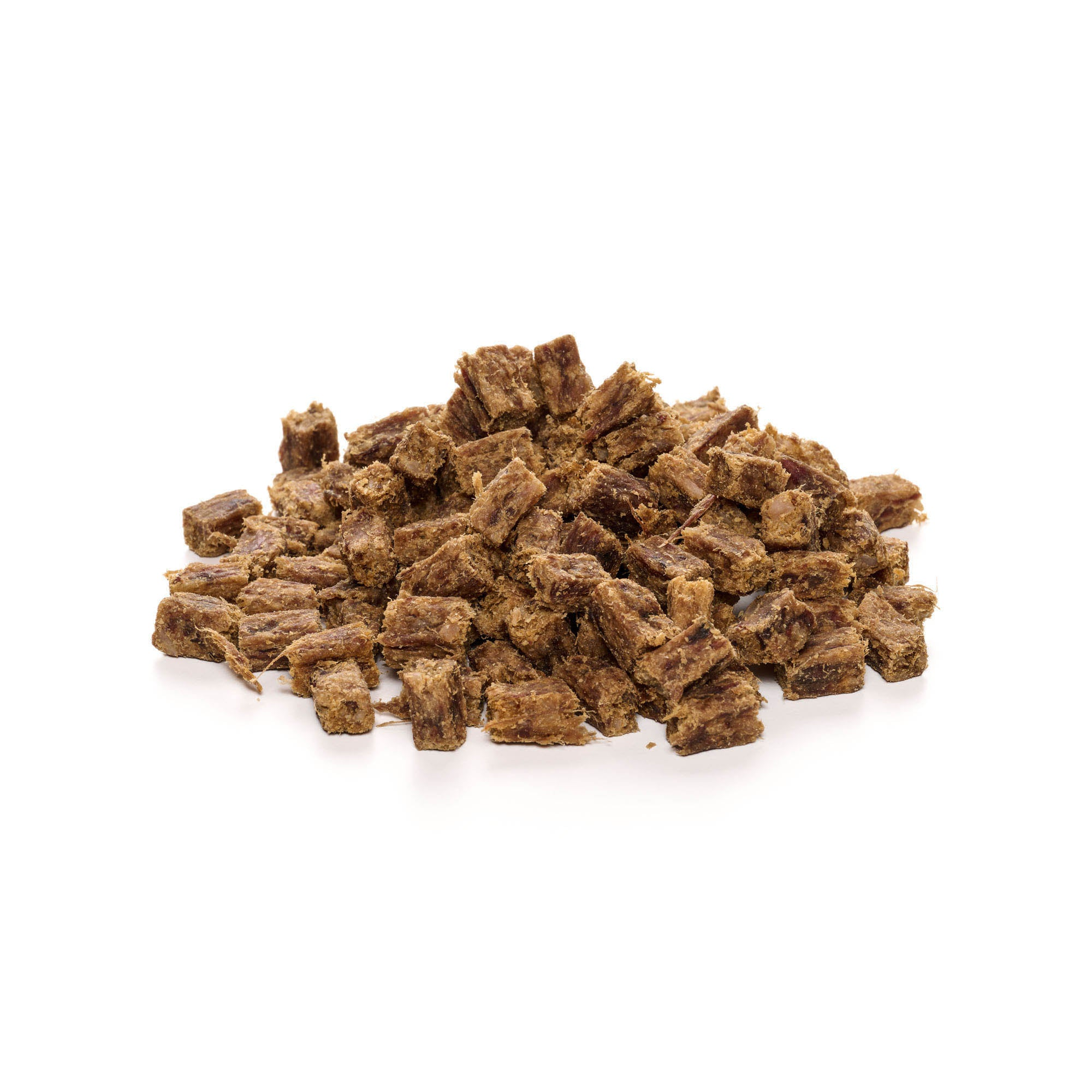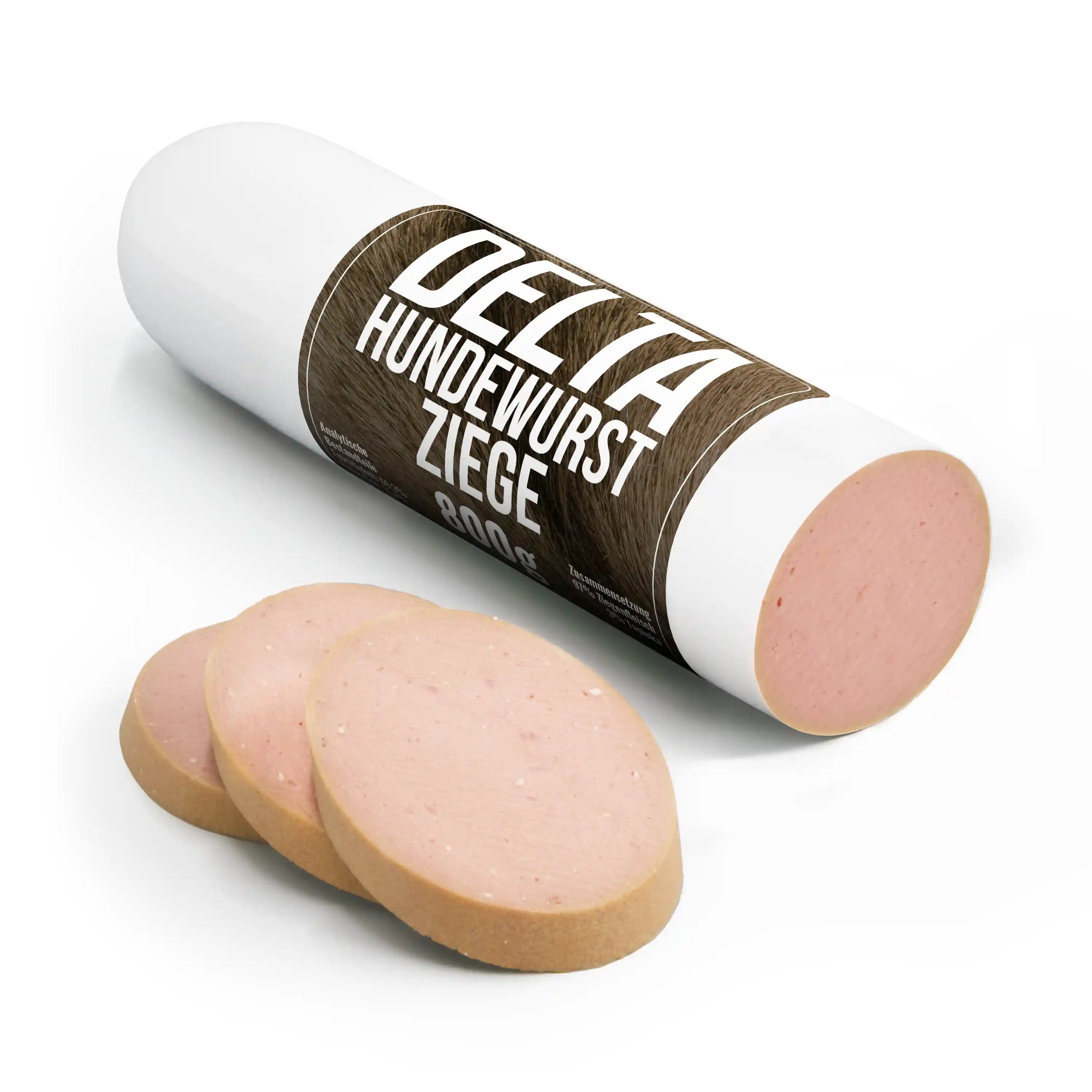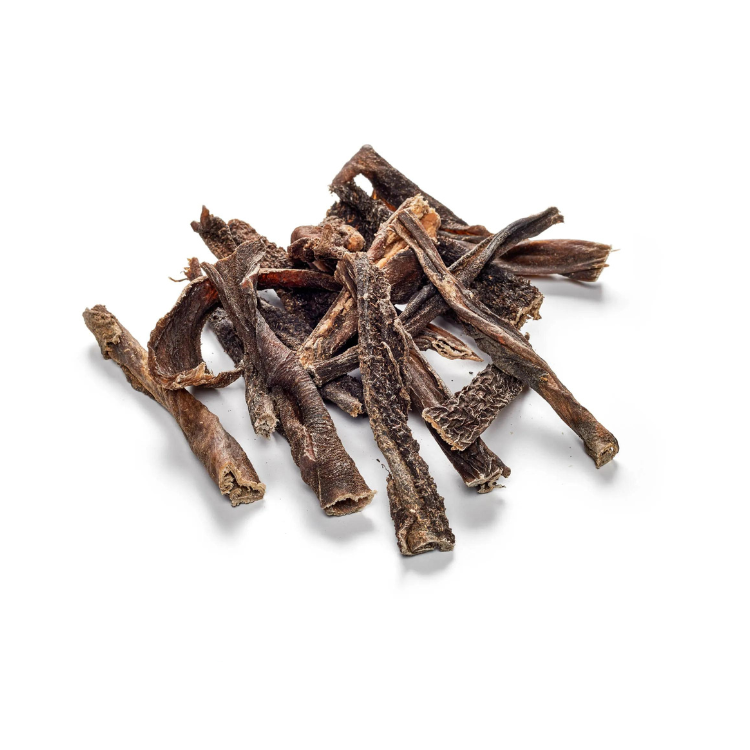
Coughing in dogs
Share
Coughing in dogs As with humans, coughing in dogs is not an illness, but rather a symptom of one or more other problems. However, that doesn't necessarily mean that it's something serious! If your dog has a cough, you should first check whether you can find and eliminate the trigger yourself. Below we'll explain coughing in dogs and when you should see a doctor. Let's go!
First-class dog chews for happy sniffing noses available here!
How does coughing manifest itself in dogs?
Coughing is a natural defense mechanism of the (dog's) body to expel foreign bodies and mucus or a reaction to irritation. A distinction is made between productive coughing (coughing up mucus) and unproductive coughing (an irritating cough that gets worse the more you cough). The sound is actually not all that different from the one we make when we are sick.
Depending on the type of cough, your four-legged friend's cough may sound a little different. Also pay attention to the following signs and symptoms, which you can report to your vet if he or she asks:
When?
Does it happen especially when the dog is exerting himself, such as when playing? Or perhaps when the pull on the collar is too strong when walking ?
Wet or dry?
Can you hear a wet, rattling sound when you listen to your pet's breathing? Do you notice them spitting out or gagging mucus? Or do you have the feeling that it is more of a dry cough?
Frequency?
Are these isolated coughs? Does the coughing occur in fits that your dog has trouble stopping?
Are there any other symptoms?
Caution is advised if you notice not only the cough itself but also other deviations from your usual behavior. As you have already learned, a cough is not a reason to panic. However, together with other symptoms, it can indicate an illness.
You may be surprised to hear that coughing can even be a sign of heart disease in dogs. If your furry friend coughs mainly at night or when trying to rest and is also constantly losing weight, it is definitely advisable to see a vet . In this case, the heart could be affected.
An infection, for example, manifests itself very differently. Firstly, the cough appears suddenly rather than gradually, and secondly, pressure on the neck, such as from pulling on the leash, is particularly irritating. If you also notice that your four-legged friend has a fever, it really is time to see a doctor.
causes
Coughing in dogs can have many different causes. To give you a better overview, we have created two categories for you:
Mucusy cough
- Heart disease in an advanced stage
- Pneumonia/tumors in an advanced stage: is often accompanied by fever and similar symptoms
- tonsillitis
- Worm infestation: there are several worms that attack the lungs and can enter the body unnoticed by sniffing or via food
Dry cough
A dry cough may occur for a few minutes if your dog has choked. This will stop on its own after a short time and is harmless.
The following causes are of concern:
- Infections and inflammations: often goes hand in hand with watery eyes or nose
- Collapse of the trachea: the risk of a so-called tracheal collapse exists especially in dwarf dogs
- Allergies
- Heart disease
Treatment
When treating a cough in your dog, you should first ask yourself whether you want to try home remedies or mild medicine first or whether it is a case for the vet.
What you can do yourself
You can try to take the initiative yourself, especially if your dog has a dry cough. Just like you do when you have a cough, your four-legged friend needs to drink a lot so that the mucous membranes are moistened and don't scratch so much. One tip is to try cooled camomile tea. However, you should always be a little cautious with herbal tea. It's best to ask your vet how much and what exactly is appropriate for your furry friend.
You can also give honey, a natural product with antibacterial properties (Manuka honey!), in small amounts via tea, water or food. If you normally smoke in your home or near your furry friend, it would be better if you stopped doing so temporarily.
Off to the vet
If you can rule out that the reason for the cough is simply choking, a mild dry cough or something similar, then you should definitely have a specialist determine what exactly it is. The older your four-legged friend is, the more likely it is that heart disease is the cause. In addition, it is essential to take medication against various viruses, bacteria, parasites - and for this, these must first be identified. You will then receive a prescription from your doctor.
You can also give honey, a natural product with antibacterial properties (Manuka honey!), in small amounts via tea, water or food. If you normally smoke in your home or near your furry friend, it would be better if you stopped doing so temporarily.
Prevent
Regular ventilation is always a good idea! You could also set up a humidifier. Both measures will help you to create a better indoor climate and thus prevent a dry throat and dry cough.
Last but not least, luckily, nowadays there is the possibility of having your dog vaccinated against various diseases. Kennel cough (infectious tracheobronchitis), for example, can be treated with medication, but with an annual booster vaccination it doesn't have to get that far. There is also good news for all the scaredy-cats: the vaccine can not only be injected, but depending on the product, it can even simply be dripped into the nose.
Conclusion
You now know that a dog's cough can have many different causes. As always, if in doubt, seek medical advice! However, there is no need to panic if your dog coughs spontaneously. First, check whether you can find the cause yourself and perhaps even eliminate it. If you suspect that it is an infection or illness, the vet can usually treat your furry friend without any problems. You should get vaccinations as early as possible and have them updated annually.
Be aware that your dog can catch something every time he sniffs while playing, in the woods, etc. You won't be able to break him of this habit or train him to stop, so accept it. However, as a vigilant owner and with regular check-ups with your trusted vet, you don't have to be afraid.
Discover the range of dog snacks in our store!

